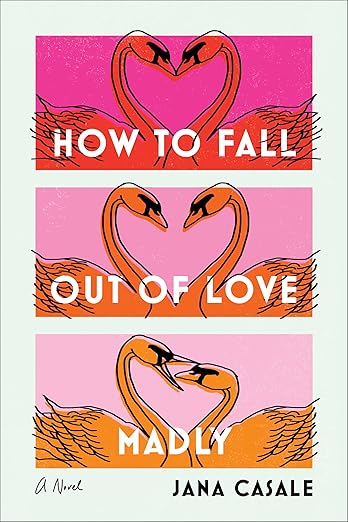In college, summer is the season of opportunity. Whether that’s chasing your dreams at an internship or spending much-needed time at home with your family, summer is the perfect time for self-reflection and growth — and there is no better way to reflect and grow than through reading. To immerse yourself in someone else’s world is in itself a form of growth. No matter how good or bad a book is, by the end of it, you are still left with a new perspective.
With that in mind, here are some of my absolute favorite summer reads for various summer scenarios:
You’re taking the summer to get over your ex: “How to Fall Out of Love Madly” by Jana Casale
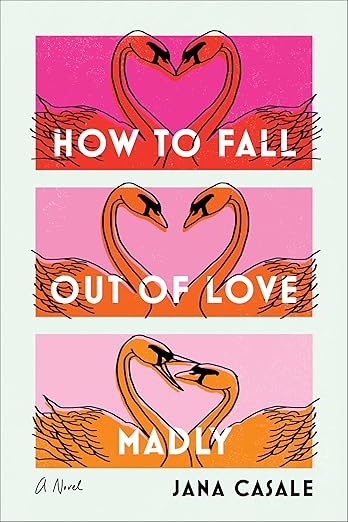
Courtesy of Penguin Random House
I struggle with recommending this book because I do not like it. With not one, but three unlikeable and unreliable narrators, Jana Casale’s “How to Fall Out of Love Madly” is a hard read. However, after taking time to reflect on this read, I’ve realized that this was the whole point of the novel.
The novel follows three women: Joy and Annie, best friends and roommates, and Celine, the girlfriend of Joy and Annie’s third roommate Theo (who Joy has a major crush on). Each woman navigates disappointment in love — Joy pines for an unavailable man, Annie yearns for a deeper sense of purpose and Celine clings to an image of perfection as her relationship falters. Through their intertwined stories, the novel examines the quiet heartbreaks and small acts of resilience that define modern womanhood.
What irked me in this novel is how often we saw these three women completely blinded by their devotion to below-average men. This is one of those reads where you find yourself cringing so hard you have to take a break, only to pick it back up because you just have to know what happens next. We witness these women repeatedly make frustrating choices, leaving us screaming at them to see their worth. But with some distance, I realized that’s exactly what makes the novel so effective. These characters are the bad choices we make about men personified — the ones we rationalize, romanticize and repeat. At some point, you stop judging the characters and start thinking about the version of yourself who would’ve done the same thing.
If you’re in your post-breakup era, “How to Fall Out of Love Madly” might actually be the perfect read. Not because it makes you feel good, but because it helps you understand why you felt so bad — why you stayed, why you settled, why you thought love was supposed to hurt. And by the end, you might find that the person you’re really getting over isn’t your ex — it’s who you were with them.
You’re trying to get into reading for the 100th time and nothing is working: “Crazy Rich Asians” by Kevin Kwan
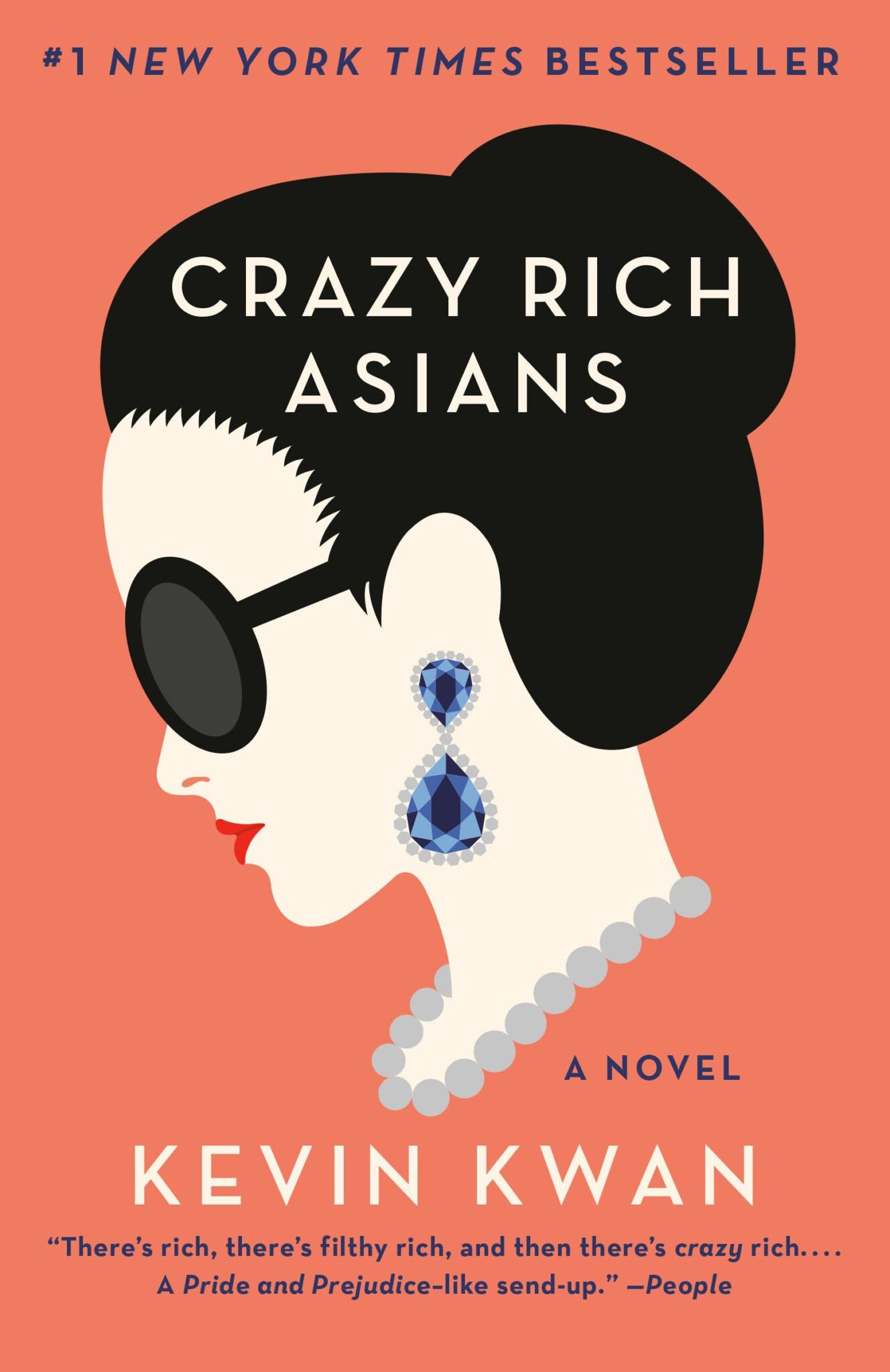
Courtesy of Doubleday
What better way of getting into reading is there than reading the book that everyone’s favorite plane movie is based on? Kevin Kwan’s novel “Crazy Rich Asians” is the first in a trilogy that is guaranteed to keep you hooked. Primarily set in Singapore, this satirical romantic comedy novel explores a turbulent love story within the tradition-bound world of the Singaporean elite.
Although the film closely follows the relationship between Rachel Chu and Nicholas Young as its main protagonists, the book takes a slightly different approach. While the beloved Chu and Young are still important and prominent characters in the novel, they are just one part of the intricate and complex web that is the Young family. If you watched the movie and were dying to know more about the glamorous Araminta, Astrid or any other Young cousin, “Crazy Rich Asians” the novel dives deeply into every character while still keeping the plot light, humorous and entertaining.
It’s the perfect read to get you out of a slump; not only because of Kwan’s addictive writing style, but also because the plot continues in Kwan’s other novels, “China Rich Girlfriend” and “Rich People Problems.”
You wish “Love Island” was a book (but with slightly more depth): “Lies and Weddings” by Kevin Kwan
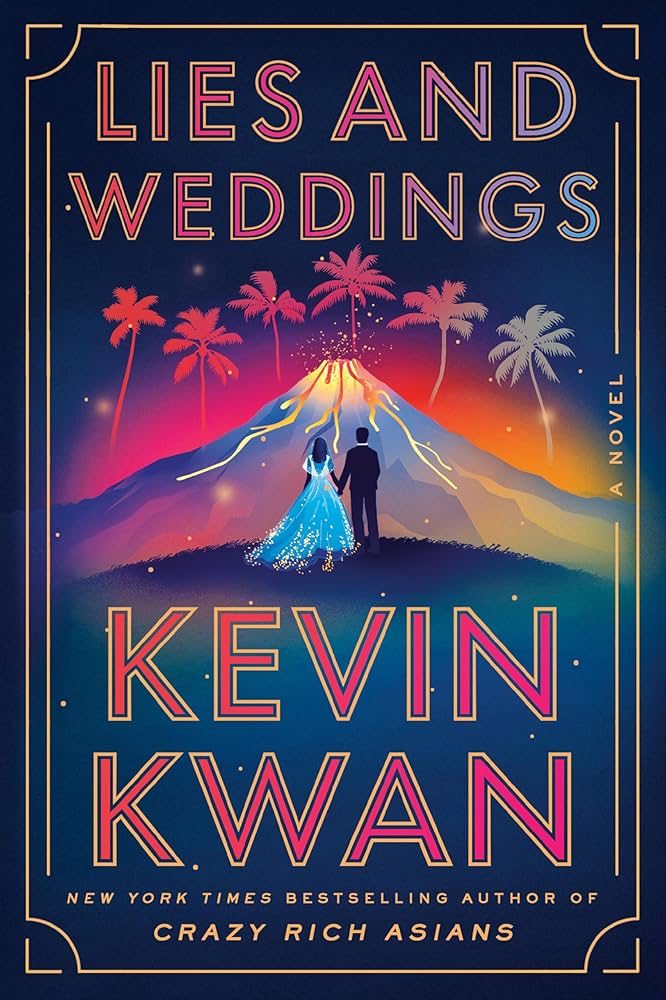
Courtesy of Penguin Random House
Here I am again on the Kwan bandwagon. Following his signature theme of a satirical comedy romance novel, “Lies and Weddings” reads like an epic telenovela whose sole purpose is to make fun of other telenovelas (“Jane the Virgin” vibes).
“Lies and Weddings” follows Rufus Leung Gresham, the genetically blessed, Oxford-educated heir to a nearly bankrupt British title. With his family estate hanging by a thread, Gresham’s ambitious mother is on a mission to secretly secure their future by orchestrating a marriage between him and one of several absurdly wealthy, eligible women. The only problem: Gresham is in love with Eden Tong, his brilliant, no-nonsense childhood best friend who refuses to play into his family’s narrative. As Tong drifts further out of reach and Gresham is pushed deeper into a world of dynastic matchmaking, long-buried family secrets surface, threatening to unravel the entire operation. What unfolds is a jet-setting, drama-filled journey through wealth, identity and impossible expectations.
It’s the kind of book where every character is either outrageously rich, wildly delusional or both — like watching a cast of “Love Island” contestants scheme for social dominance, except the villa is a castle in Scotland and the stakes are dynastic power. Everyone is trying to outmaneuver one another with secret bank accounts, fake engagements, dramatic entrances and even more dramatic exits. The love stories are messy, chaotic and deeply unserious — except for Tong, who somehow manages to stay grounded in a world that makes absolutely no sense.
Tong is the one character who feels like she’s actually living in the real world, and her refusal to be sucked into the spectacle gives the book its emotional weight. Watching her stand her ground while everyone else spirals is deeply satisfying, and it gives the story just enough depth to keep it from becoming pure parody. “Lies and Weddings” is for anyone who wants high drama, ridiculous wealth and slightly-too-attractive people making bad decisions — but also wants one person to root for.
You want to quit your internship: “Disorientation” by Elaine Hsieh Chou
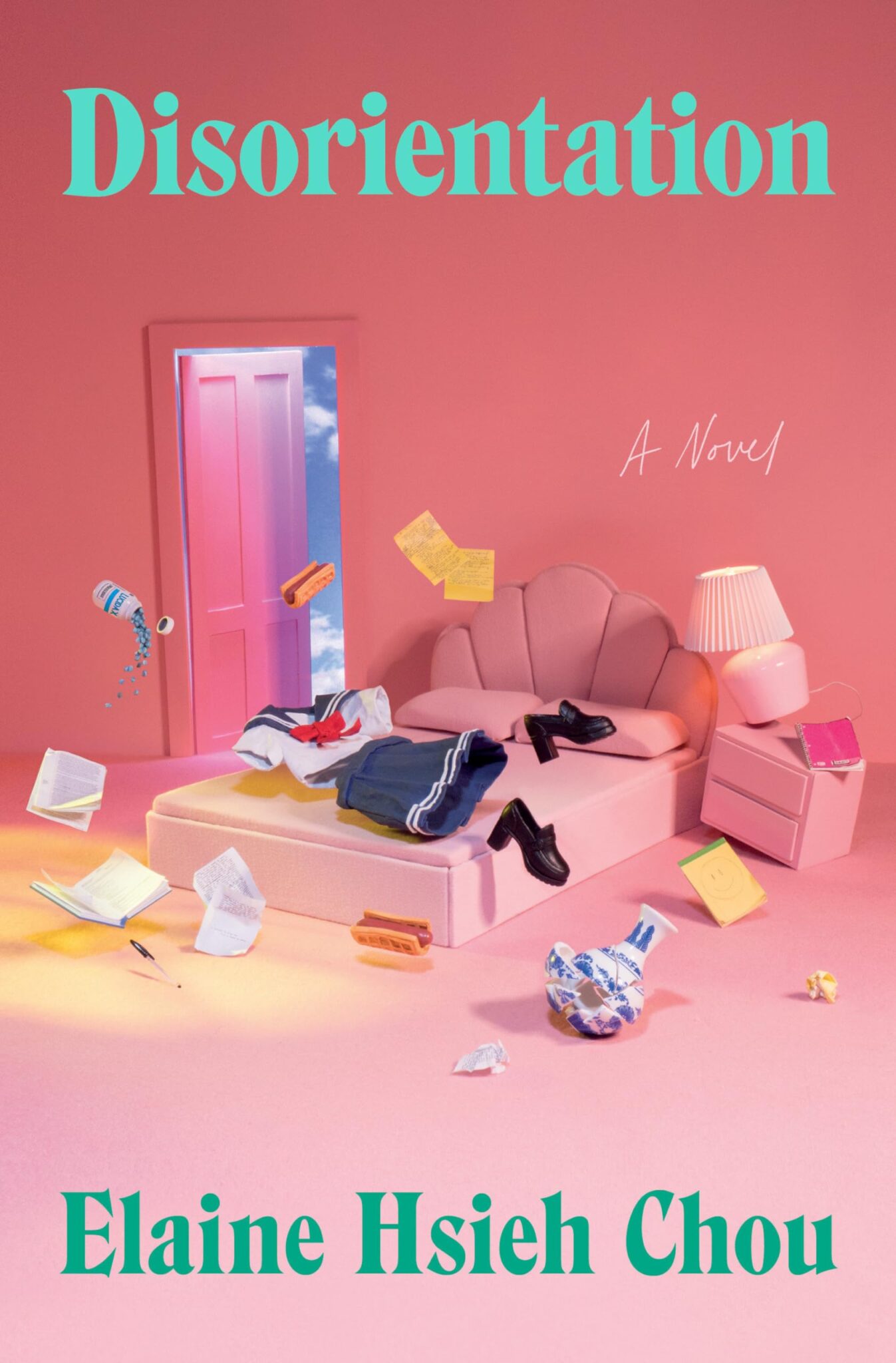
Courtesy of Penguin Random House
There comes a point in every internship — or job, or degree — when you start to wonder if any of it actually means anything. “Disorientation” leans into that exact feeling: the slow unraveling that happens when you start to question the system you’ve spent years trying to succeed in.
The novel follows Ingrid Yang, a Taiwanese American doctoral student just trying to finish her dissertation on a famous Chinese American poet. When she stumbles on a secret that exposes the lie at the center of her academic work, things unravel fast — think sabotage, identity crises, microaggressions, performative wokeness and a campus full of people pretending to be experts while knowing absolutely nothing. It’s messy, loud and incredibly cathartic.
What makes “Disorientation” such a satisfying read is that it understands how it feels to be stuck in a system that seems important on the surface but hollow underneath. It’s a story about letting go of the version of success you thought you were supposed to want — if you’re questioning why you’re putting up with any of it, this book might not give you answers, but it will absolutely validate the urge to walk away.
You want to finish a book in one sitting and be forever changed: “Women” by Chloé Caldwell
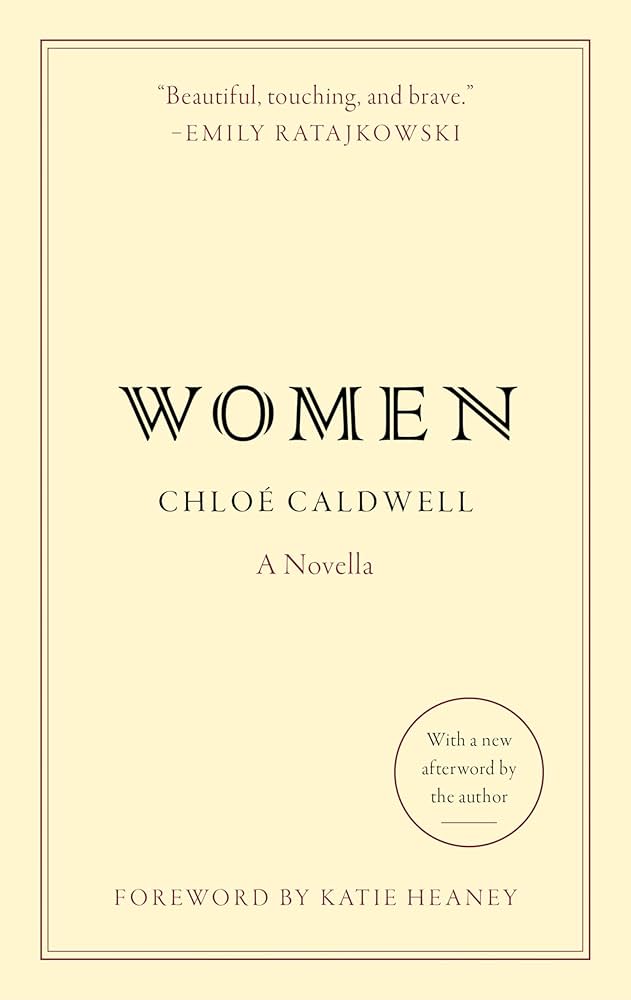
Courtesy of HarperCollins
“Women” is the kind of book you don’t plan to read all at once — it just happens. One minute you’re a few pages in, and the next you’re staring at the last line, feeling like you just escaped a fever dream.
Told in sparse, confessional prose, “Women” follows an unnamed narrator as she falls into a consuming relationship with a woman for the first time. The story unfolds in fragments — scenes of intimacy, obsession, confusion and longing — that mirror how memory works when you’re deep in something you can’t fully explain. There’s no big twist or resolution, just a raw, unfiltered look at what it means to want someone so badly that you start to lose track of where you end and they begin.
It’s short, sharp and emotionally devastating in the quietest way. “Women” doesn’t try to universalize queerness or heartbreak — it just sits with it, messy and real. Perfect for when you want to feel everything, all at once, and come out the other side a little bit undone.
This is your last summer of college and you’re dreading it: “Happy Place” by Emily Henry
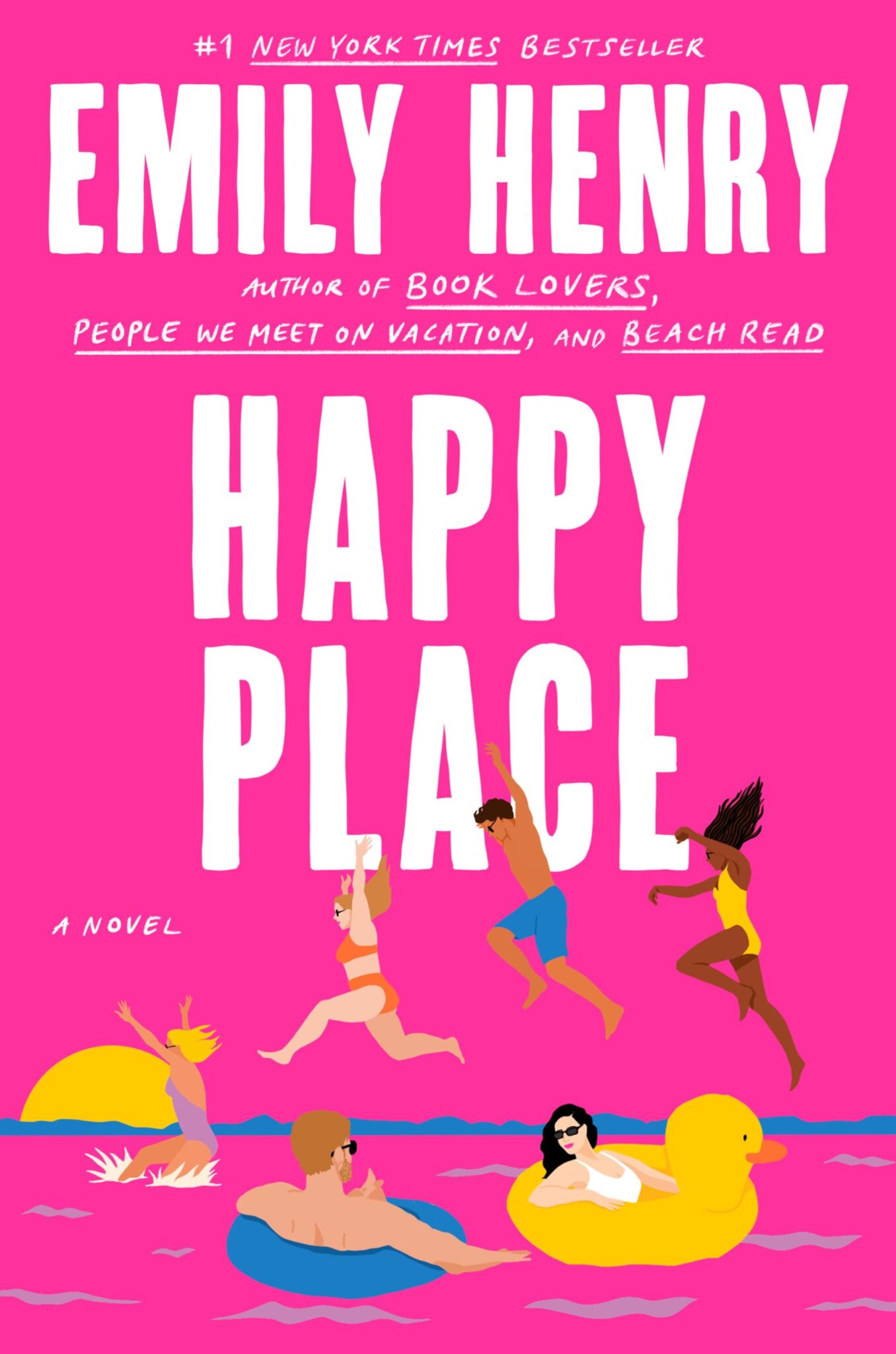
Courtesy of Penguin Random House
Emily Henry is the well-known queen of feel-good romance novels. And while “Happy Place” is a romance novel, I believe that at its core, it’s a book about growth.
“Happy Place” follows main characters Harriet and Wyn, a couple who secretly broke up but pretend to be together for their college friend group’s annual vacation. Taking place at a summer cottage in Maine, the book centers around Harriet and Wyn’s complicated dynamic as they navigate their sudden breakup while putting on a strong face to keep the friend group vacation alive.
What I love about this book is not the will-they-won’t-they dynamic of Harriet and Wyn (although that part is pretty great), but rather the portrayal of the friendship between Harriet and her best friends, Sabrina and Cleo. Best friends since their first year of college (with the book taking place several years after they’ve graduated), “Happy Place” navigates how this trio has grown together and apart throughout the years, still holding their college memories close.
Going into my final year of college, the thing I fear most isn’t graduation — it’s the slow fade of friendships I’ve come to count on. The idea that one day, group chats go quiet, weekly routines disappear and people you once saw every day become people you only hear from on birthdays. The most striking part of “Happy Place” is how it handles post-college friendship — not as something that inevitably fades, but as something that changes shape. The dynamic between Harriet, Sabrina and Cleo isn’t preserved in some idealized form; it’s tense, complicated and often uncomfortable. But underneath all of it is care, even if it’s not always easy to express.
The book captures the reality that staying close takes more than shared memories — it takes intention, honesty and the willingness to adapt. As college ends and everything else begins, there’s comfort in the reminder that friendships don’t have to stay the same to still matter.
